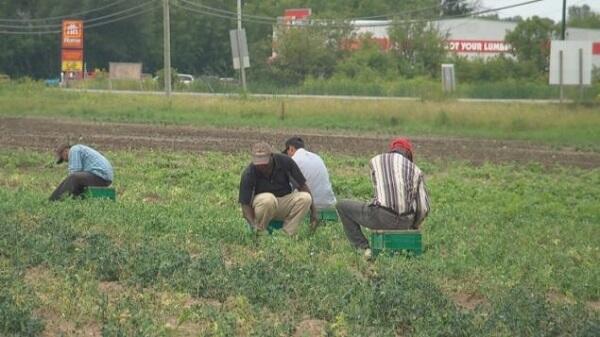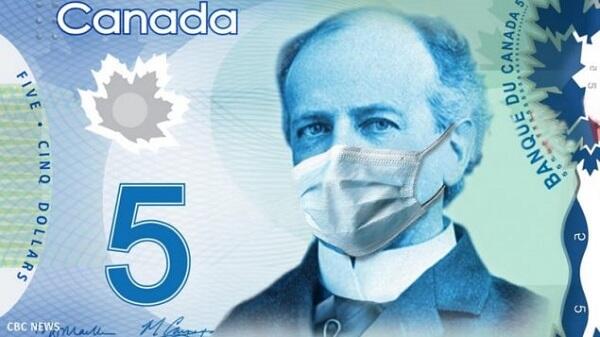Canada丨COVID-19 Global Outbreak Highlights(4.11~4.17)
1. A novel coronavirus rapid detector developed in Canada was put into mass production
A COVID-19 virus rapid detector developed by the Spartan Bioscience in Ottawa was approved by Health Canada of Canadian Federal Government into mass production on April 12 and will be delivered to the health agencies designated by the federal and provincial governments successively in mid-April.
It is reported that this detector is not only lightweight and portable but also can show the detection results in less than 60 minutes. Each this detector can perform tests on 10 to 15 nasal or oral extracts daily and give the detection results. Spartan Bioscience said it would roll out an upgraded version of the detector capable of delivering detection results in less than 30 minutes in the near future.
2. Canada spent C$ 50 million to help in a quarantine of foreign seasonal workers
The Canadian Government announced on April 13 that it would allocate C$50 million to help pay the expenses incurred by foreign seasonal workers employed by farms and seafood processing plants during the 14-day quarantine upon arrival in Canada.
The government stipulated that the foreign seasonal workers must be quarantined for 14 days upon arrival in Canada. During the quarantine, the employers must pay them wages and provide the board and lodging. As compensation, the government would offer a subsidy of C$1,500 per foreign worker to the employers
Agriculture Canada Minister Marie-Claude Bibeau said foreign seasonal workers were critical to the proper functioning of the Canadian food supply chain and to guaranteeing food security and price stability for Canadians. However, the Minister also warned that if employers or foreign workers were found to have failed to comply with such quarantine rules, they could face fines or imprisonment.

3. Nearly six million people in Canada have applied for Canada Emergency Response Benefits
According to the Ministry of Labour, Canada, nearly 6 million people have applied to the government for COVID-19 emergency response benefits or unemployment benefits in March. So far, authorities have completed the approval process for 5.4 million applications.
If approved, the applicant will receive an assistance payment of C$2,000 monthly for up to four months.
The Conservatives have criticized Canada’s Emergency Response Benefit program for being badly designed and ignoring those who are not unemployed but are working fewer hours.
4. Printed ads in Canadian supermarkets could disappear after the outbreak
After the outbreak of COVID-19, many Canadians began to shop online instead of in stores. This has made some big chains decide not to offer printed ads in their stores. Among them, the Loblaw Group has even announced its plan of permanently stopping printing and delivering weekly ads to households and placing them on websites and through mobile apps only, instead.
The Loblaw Group owns a number of chain stores, such as Loblaw, No Frills, Real Canadian Superstore, and Maxi. Other chain store groups are also experimenting with replacing printed ads with online ones.
Some experts believe that after the COVID-19 epidemic, the decades-old marketing tool printed ad may be dying out. And this will hurt the printing industry, and also the mail industry.

5. COVID-19 could affect Canada's food supply
Agriculture Canada Minister Marie-Claude Bibeau said on April 15, the outbreak of COVID-19 could affect Canada's food supply, resulting in such as higher prices or some food shortages
At a meat processing plant near Calgary, Alberta, 38 workers have been confirmed with COVID-19 and the plant will be closed for at least two weeks. Also, confirmed cases have been reported at the JBS meat processing plant and the Harmony Beef processing plant in Alberta successively. They have produced three-quarters of Canada's beef. Later, a public health officer of Alberta said the meat from these plants was safe.
Labour shortages are not just the result of workers falling ill, but also of workers refusing to work for fear of catching the disease. In Canada, employees have the right to refuse work if they feel their health is at risk
Deputy Prime Minister of Canada Chrystia Freeland said on April 16, the government was trying to figure out ways of helping the food processing industry, which is facing severe challenges, deal with the outbreak.
6. Trudeau: Starting the economy too early would be "disastrous"
Prime Minister of Canada Trudeau held a conference call with provincial premiers on the night of April 16 to discuss reopening and starting the economy. Trudeau warned that a premature resumption of economic activities could undermine the efforts and progress made so far to contain the virus. He said, moving too quickly could be "disastrous."
Trudeau said there was still a long way to go before the economy could be restarted.
In addition, the average distance traveled by mobile phone users in Quebec, Ontario, B.C., Yukon, and Alberta has declined by more than 50% since January, according to the location-based data from mobile phone companies. The tally in other provinces has also reduced by at least 25 percent.
7. Bank of Canada Appealed: allowing customers to use cash
The raging COVID 19 in Canada has made some stores reluctant to accept cash for fear of increasing the risk of cashiers being infected.
In early April, the Switzerland-based Bank for International Settlements released a research report, saying that exposure to cash was associated with a low risk of COVID 19 infection, and no cases had been reported due to that. COVID-19 virus is more likely to survive on plastic and stainless steel surfaces and using credit and cash cards to pay bills through a POS also carries a risk of being infected by the virus.
Thus, the Bank of Canada has strongly called on the businesses to accept cash payments and let customers pay in their most willing and convenient way. According to the Bank, Canada's popular currency is made of polyester material that can be cleaned and sterilized.

8. North American stocks were mixed, while oil and the Canadian dollar continued to weaken
North American stocks were mixed on April 16, with Canada's major stock indexes weakening due to underperforming financial and energy sectors and the U.S. major stock indexes rising on the back of big technology companies.
Toronto Stock Exchange’s S&P/TSX Composite Index closed down 59.26 points at 13,899.32.
Toronto's financial sector underperformed the overall market, closing down 2.38 percent; the six major banks' declines ranged from 1.91% to 4.06%.
Energy shares fell 4.31 percent as oil prices fell, with the June crude contract falling 51 cents to $25.53 a barrel. TC Energy's keystone pipeline suffered another judicial setback, with its company down 3.56% and Suncor Energy inc. down 5.75%.
After a poor morning on Wall Street, the Dow Jones Industries Average Index closed up 33.33 points at 23,537.68, the Standard & Poor's 500 Index gained 16.19 points to 2,799.55, and the NASDAQ Composite Index rose 139.19 points to 8,532.36.
The Canadian dollar averaged 70.81 cents against the U.S. dollar, down from an average of 70.99 cents on April 15.
The June gold futures contracts ended down $8.50 at $1,731.70 an ounce.
9. The Canadian Government continued to expand funding for small businesses
Prime Minister of Canada Trudeau announced on April 16 that Canada was expanding its Canada Emergency Business Account (CEBA) to make more small businesses eligible for $40,000 interest-free loans, and launching a new rent-waiver program for Canadian companies affected by the outbreak.
The CEBA, which originally allowed only companies with annual payroll expenses falling between C$50, 000 and C$1 million to apply, will now relax the rules, allowing companies with payroll expenses ranging from C$20000 to C$1.5 million in 2019 to apply.
So far, 195,000 companies have been approved and received loans totaling C$7.5 billion.
Trudeau said Ottawa and other provinces were also working on a new program called Canada Emergency Commercial Rent Assistance to provide small businesses with rental subsidies in April, May, and June.


相关新闻
-
暂无信息